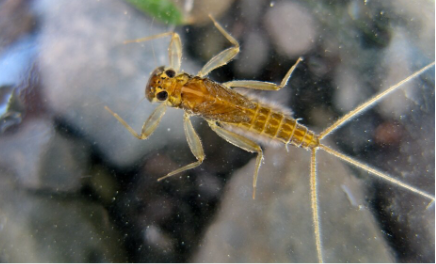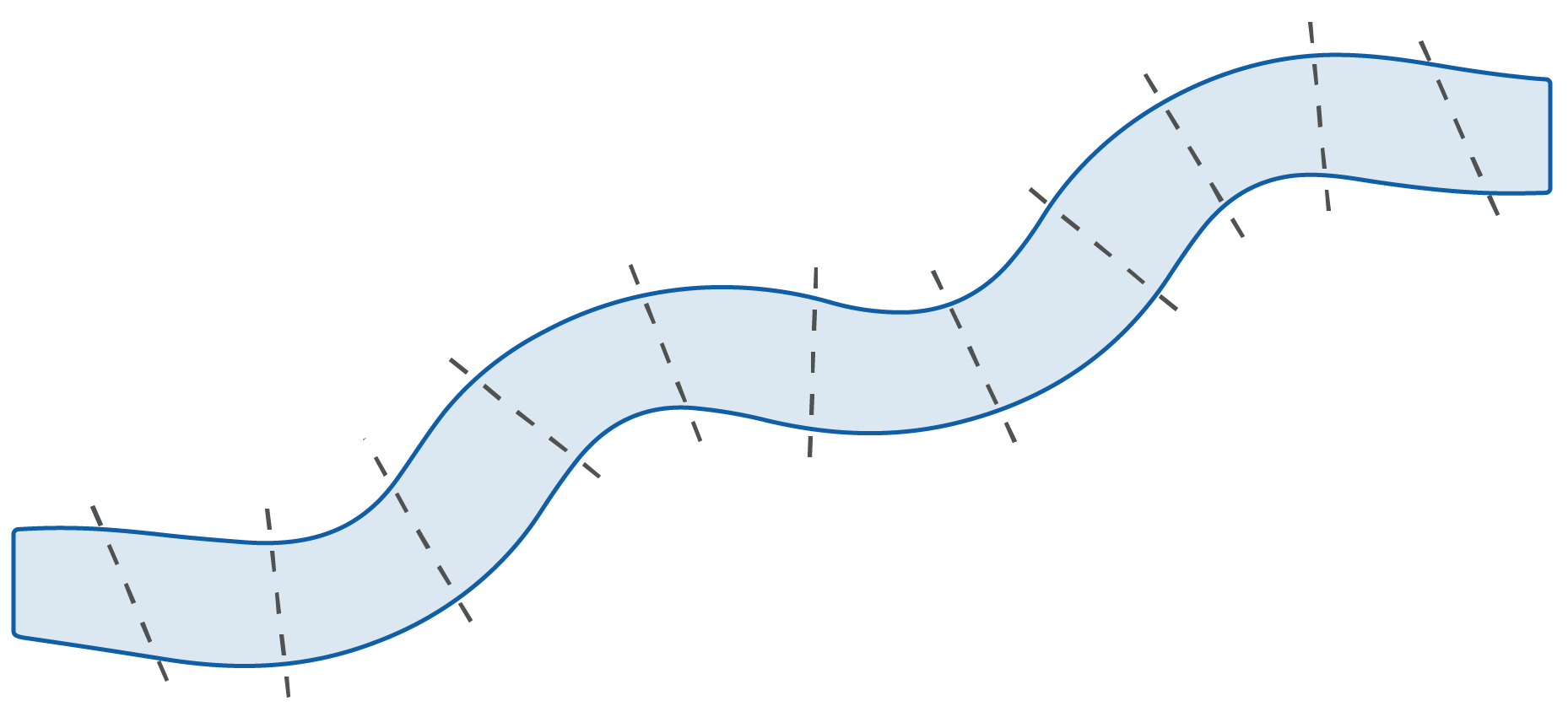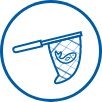Nets are used to collect fish and macro-invertebrates (such as aquatic insects and snails) throughout the stream reach. Macroinvertebrates are collected using a special net, preserved, and sent to experts for identification. Fish are identified in the field and for the most part released. A few fish are also collected to test for mercury and other contaminants in larger fish.
How are these data used?
Nets are used to collect samples for one human health and two biological indicators.
Biological Indicators

The macroinvertebrate indicator assesses the variety and abundance of small organisms, such as aquatic insects and snails, that live on the streambed. They are widely used as indicators of ecological health because they respond to human disturbance, are broadly geographically distributed and are connected to fish (through their role as a food source).
Where are macroinvertebrates collected?
from the stream bottom at each
transect of the sample reach.

To learn more, see the
NRSA Field Operations Manual.




